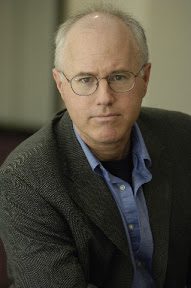Whether we like it or not, politics is everywhere. Turn on the TV, any channel really, and there it is: politics. Get up and go to work, and there it is again: politics.
Despite its initial stench of nastiness, betrayal and lies, politics is actually a skill — and a worthwhile one.
Seldom have leaders or managers in any business or organization gotten to where they are without playing some form of office politics. And if they managed to get by without doing so, it’s likely they got lucky, some experts say.
One such expert is Jack Godwin, a political scientist and author of “The Office Politics Handbook: Winning the Game of Power and Politics at Work.” To Godwin, politics is about understanding and recognizing power. He said even workers who are turned off by the idea of politics could find use in becoming politically astute.
Chief Learning Officer spoke with Godwin about office politics as a leadership skill. The following are edited excerpts from the interview.
How do you define politics as a skill in the workplace?
Well, I’d say there are two elements of social and the personal. The social skills are important because politics takes place wherever there are people who are independent and where the distribution of power is asymmetrical. What makes people interdependent? The organization has a goal — some sort of mission that requires people to work together. What makes the distribution of power asymmetrical? Somebody has bureaucratic authority in the office — power by virtue of his or her position. Social because, well, there are at least two people.
The other half is a personal element, which requires self-awareness, self-discipline, self-control, and when you’re talking about office politics you have to show people that you can police your own bad habits and not politicize situations inadvertently and unnecessarily. So there’s a personal and a social. The way I define politics, I say politics is about power, and any social situation and any relationship becomes political, becomes politicized, the moment power is introduced.
How is office politics different than the politics we’re familiar with, like government politics? How is it the same?
Well, “The Office Politics Handbook” is really about politics for the rest of us — not presidents and prime ministers, but people who work for a living. Anyone who works in any kind of an organization has to contend with politics. So what’s the difference? It’s a matter of scale. Office politics — or as I refer to it throughout the book, micro-politics — takes place on a human scale between supervisors and employees. It’s similar except for the scale.
How does a leader become politically astute?
This is a three-part answer. It has to do with situational awareness. First, you ask yourself: What is the degree to which the situation or the environment lends itself to personal intervention, your intervention? Second, what is your position and status? That is, are you strategically placed within the situation? And third, what are your relative strengths and weaknesses and what are the strengths and weaknesses of other individuals in the situation.
This to me is the inventory of situational awareness. This is an abbreviated version I go on at length about for half a chapter in the book. If you can read the field, read the players, calculate the power differential, list the alternative courses of action, consider the consequences of inaction and then make your move — all in a span of a few moments, a few seconds — then I would say that’s an executive, that’s a leader who is politically astute.
Is this a skill that can be taught?
I think it can be. What I would say is a skill is something that you could acquire by education, training and experience. So it can be taught, it can be learned. And the way you learn politics, you might say interpersonal politics at this level, is the same way you learn anything else — by studying and practicing. The more you cultivate your skills, the sharper they become.
Can a leader be successful without playing politics?
I think so, but I think it would take luck. More often I think the people who rise are already politically skilled. Take Bill Clinton. He loves politics, the art of acquiring and using power. He’s a politician the way some people are a natural musician or a natural athlete. I don’t mean to imply that anyone has the same potential any more than anyone can be a world-class athlete or musician. But you can learn to live up to your potential.
In the corporate world, a chief executive must have political skills regarding the external environment, right? There are always external stakeholders, shareholders, environmental lobbies and government legislators. I think you also have to be skilled internally.
Most firms would prefer office politics stay out of the spotlight. Should corporations teach politics as part of their formal leadership development programs?
I would say yes, corporations and business skills I think should give the same weight to developing political skills as they would give to developing good communication skills or good negotiation skills.
These are micro-skills, but they all fall into the same category — what we call people skills. … It’s always easier to work with any person who’s got those technical skills but who’s also got good people skills. Good communication, good negotiation and good political skills. So it’s a question of when we use the world politics, or political skills, let’s not automatically assume it’s negative. The book is not about setting traps or playing dirty tricks on your co-workers. It’s about creating a better environment for everybody, yourself included. Even if you never go on offense, there’s nothing wrong with playing defense. There’s nothing wrong with recognizing the political environment and being able to read that field like I said.
Frank Kalman is an associate editor at Chief Learning Officer magazine. He can be reached at fkalman@CLOmedia.com.















